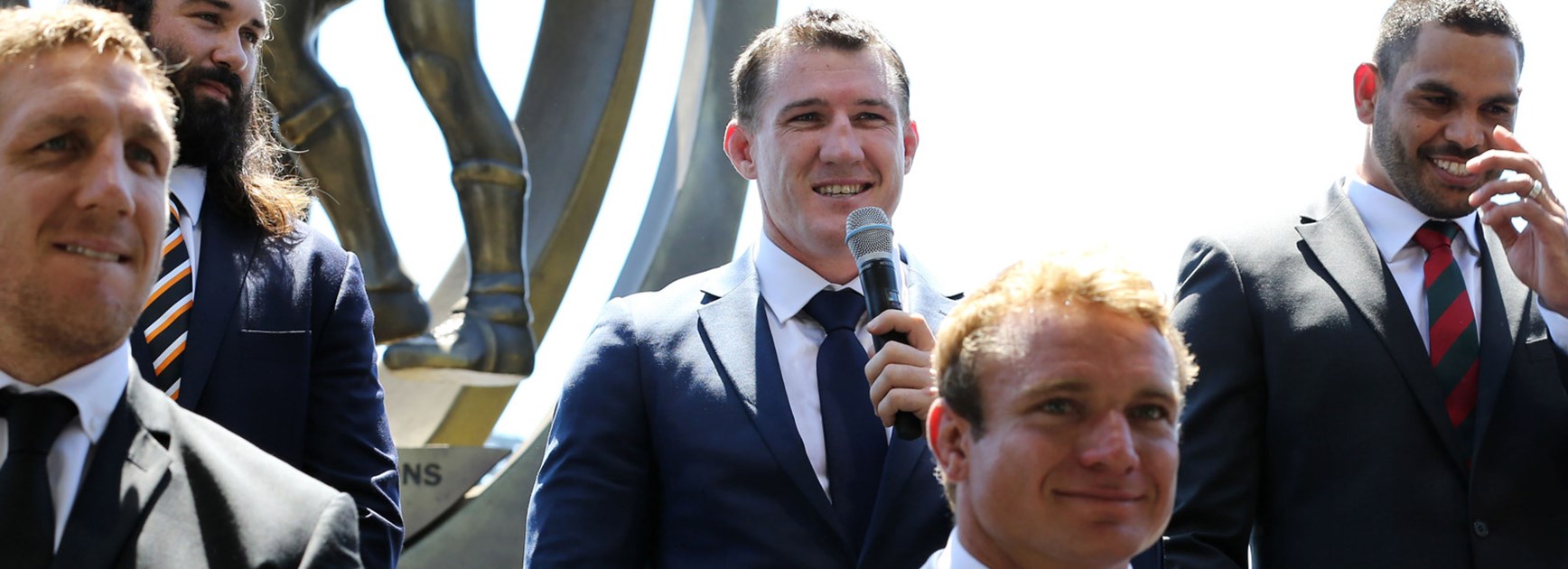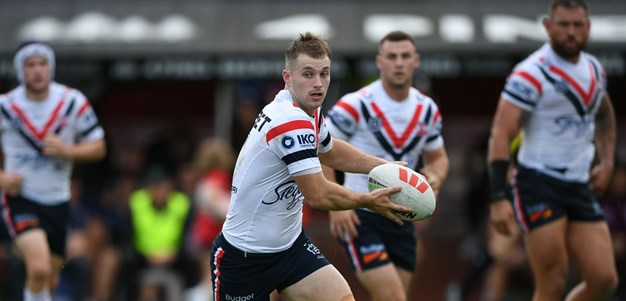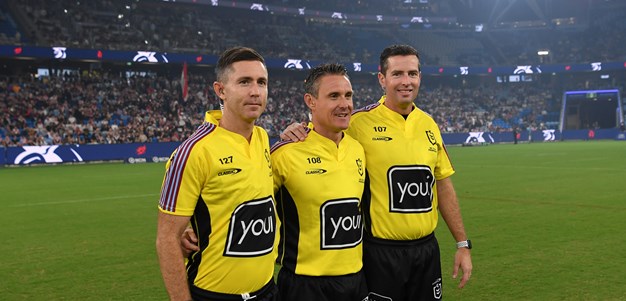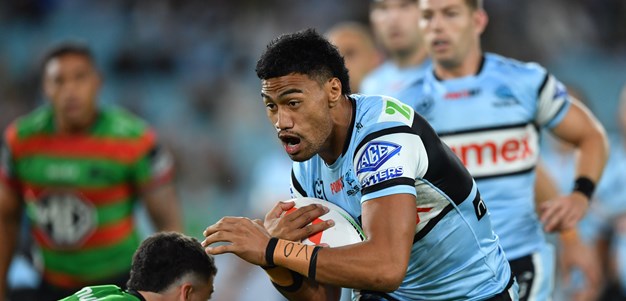
NRL club captains have mixed views on what sort of impact the reduction in interchanges will have this Telstra Premiership season, and whether the figure should have been dropped from 10 straight to six.
There has been much discussion through the pre-season on exactly what effects a reduction from 10 to eight interchanges will have, with many noting coaches kept a couple of interchanges in reserve right up until the end of games last season.
Cronulla captain Paul Gallen said it would have been better to drop the figure straight to six while Eels captain Tim Mannah praised the safety-first approach, though both agreed the decrease by two is unlikely to have a drastic impact.
"As far as the interchange goes I would have liked to see it go to six, I don't think eight is going to have a massive impact on the competition," Gallen said.
"Purely because sides last year – a lot of teams didn't use their 10 interchanges at times and sometimes the last five or 10 minutes you just throw a bloke or two on just to get them on the field because you had it there.
"I think it's only going to come into play if you get injuries in the outside backs and you've got to replace guys there, otherwise I don't think it's going to have too big an impact on the comp."
Gallen also said the shot clock at scrums would not have a major impact as it allows teams to slow down on the occasions they would have packed the scrum in under 35 seconds.
"I spoke to a few of the boys in the All Stars game and they said there was a few times they got to the scrum relatively quickly for whatever reason, there might have been an error, the shot clock was on and they were ready to go with 15 or 20 seconds to go and they realised the shot clock was on so they just stopped and had a rest for 15 seconds," Gallen said.
"As with everything, there's pros and cons but they definitely did say at times they used the shot clock for a rest."
However Mannah cautioned that injuries can become more likely when players are fatigued, meaning the NRL made the right call by moving to eight interchanges first to assess the impacts.
"It does excite me – every player wants to play bigger minutes so it will be good to be out on the field a bit longer but I've got question marks over the whole purpose of it.
"They say it's to prevent injury but I personally think when you're tired and fatigued your technique can go out the door and that's when you're most vulnerable to injury. It will be interesting to see how it works but it's a new challenge and one I'm excited about."
Mannah also wasn't convinced that tiring out the forwards would lead to more attacking football.
"I think it depends what view you're from. Entertainment-wise people think it's going to make the game more entertaining – that's yet to be proven but I don't think it's going to change the game dramatically."
He insisted both he and his teammates would be ready for the new rules when they open the season at home against the Broncos on Thursday night.
"We've definitely had a harder summer than the last couple of years but I think every team is training harder. It will change the game a little bit but I can't see it being a huge change," he said.



